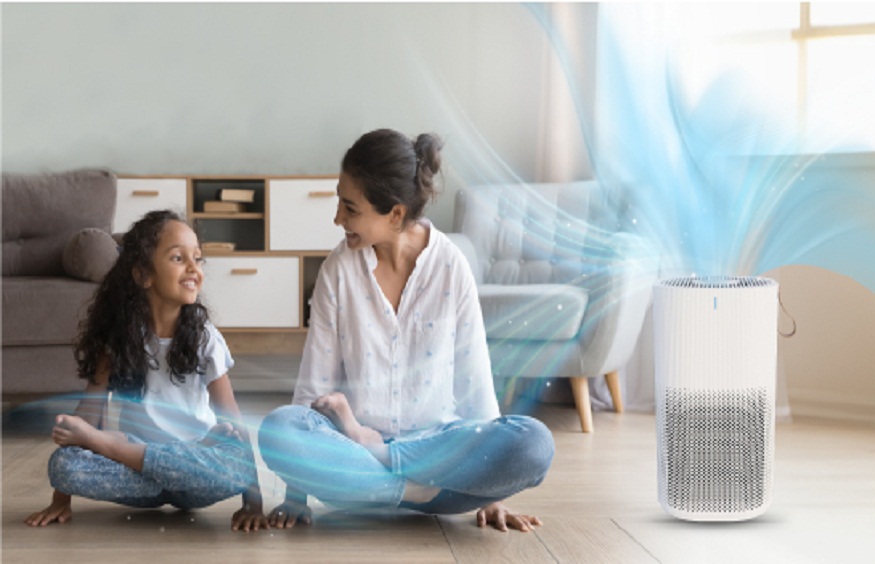Although many people find it challenging to obtain the deep, peaceful sleep they want, getting good sleep is crucial for general health and well-being. The air quality in your home is one frequently disregarded element that can affect your ability to sleep. Dust, allergens, and other airborne particles are examples of pollutants that can aggravate respiratory problems, aggravate allergies, and impair sleep. This is where air purifiers come into play, providing an easy-to-use yet efficient way to enhance the air quality you breathe and, consequently, your sleep.
Healthier Environment for Sleep
Air purifiers remove dangerous airborne particles from a room, contributing to a healthier sleeping environment. Pollen, dust, pet dander, and other contaminants can accumulate in your bedroom, causing annoyance and sometimes interfering with sleep. To function, an air purifier must first pull in air, filter out impurities, and then release cleaner, fresher air back into the space. Breathing becomes more accessible during the night due to this process, which lowers the air’s irritating content. You are, therefore, less likely to have symptoms that could keep you awake at night, such as congestion, sneezing, or coughing.
Minimising Allergens to Enhance Comfort
Air quality issues aggravate allergies, especially in enclosed areas like bedrooms. An air purifier equipped with a high-efficiency particulate air (HEPA) filter can capture allergens like dust mites, mould spores, and pollen. These allergens are frequently responsible for allergic reactions. An air purifier can lessen the likelihood that you will wake up with itchy eyes, a clogged nose, or other allergy symptoms by decreasing the amount of these allergens in the air. This creates a more cosy sleeping environment and considerably enhances your sleep quality.
Removing Bad Odours
Odours in the house, whether from cooking, pets, or other causes, can be bothersome and make it hard to unwind before bed. Because activated carbon filters absorb the chemicals that generate unpleasant odours, they are very effective at neutralising them in air purifiers. Inhaling purer, odourless air makes the bedroom feel calmer and cosier, encouraging relaxation and facilitating falling asleep.
Improved Breathing
Poor air quality can directly impact Breathing difficulties during sleep, particularly for those with asthma or sleep apnoea. Dust, smoke, and chemical vapours are airborne pollutants that can irritate the respiratory tract and inadvertantly cause breathing problems that interfere with sleep. By eliminating these irritants, air purifiers contribute to cleaner air, which improves respiratory health. An air purifier can improve the quality of your breathing throughout the night and facilitate restful sleep by increasing airflow and lowering irritation.
Encouraging a Calm and Relaxing Environment
A quiet and serene setting is essential to encourage relaxation and get the body ready for sleep. An air purifier’s soft hum can act as a white noise, masking other distracting noises that could otherwise keep you up at night. Consistent background noise can also induce a calming feeling, which promotes more profound relaxation and accelerates the process of falling asleep. Furthermore, knowing your air is pure and devoid of dangerous particles might help you sleep better.
Conclusion
By lowering allergens, removing offensive smells, and improving the quality of the air you breathe, air purifiers can change the quality of your sleep for the better. You are more likely to get a good night’s sleep when the air is cleaner and less irritable. Air purifiers are a great addition to any bedroom setup, whether you’re trying to improve the quality of sleep you get, wake up feeling invigorated, or are struggling with allergies or respiratory problems.

